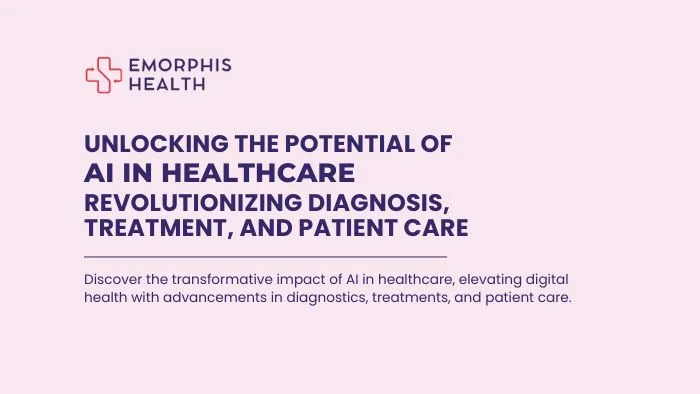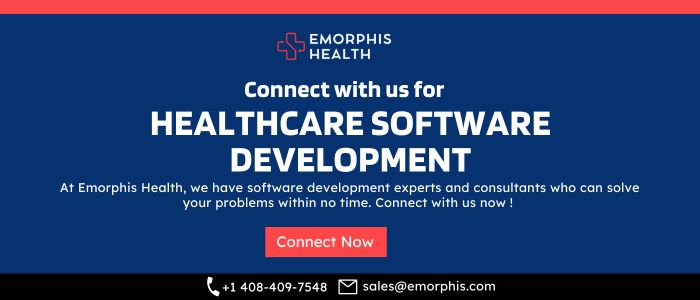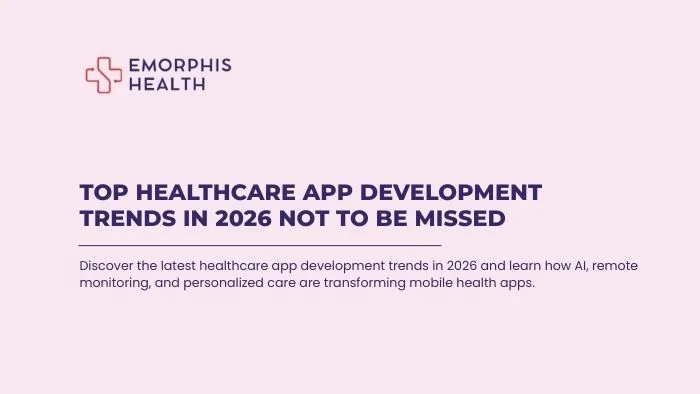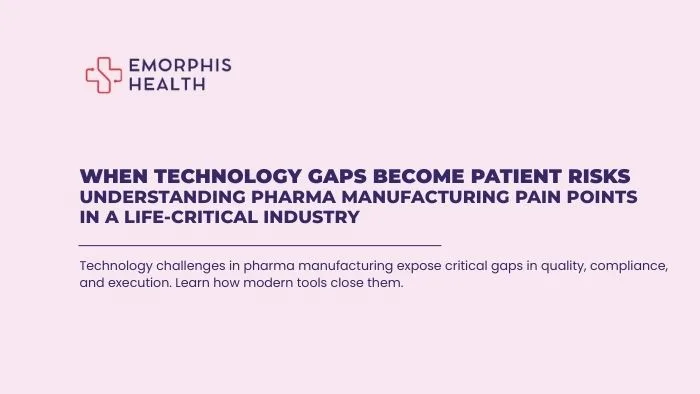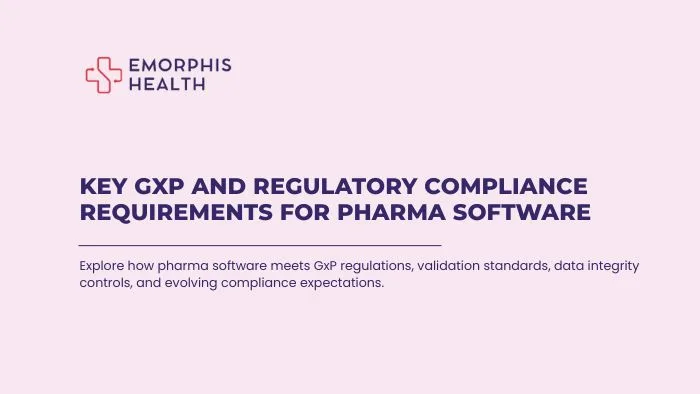Overview
See Contents
Artificial Intelligence (AI) has been making significant strides in the field of healthcare and has the potential to revolutionize various aspects of the healthcare industry. According to Statista report, in 2021, the global market for artificial intelligence (AI) in healthcare reached approximately 11 billion U.S. dollars. Forecasts suggest that by 2030, the market will surge to nearly 188 billion U.S. dollars, with a compound annual growth rate of 37 percent from 2022 to 2030. Moreover, according to a report by Precedence Research, in 2022, the global market for artificial intelligence (AI) in healthcare was approximated at USD 15.1 billion, and it is anticipated to surpass USD 187.95 billion by 2030, with a projected growth rate of 37% during the forecast period from 2022 to 2030. The North American market for AI in healthcare reached a valuation of USD 6.8 billion in 2022—valuation of USD 6.8 billion.
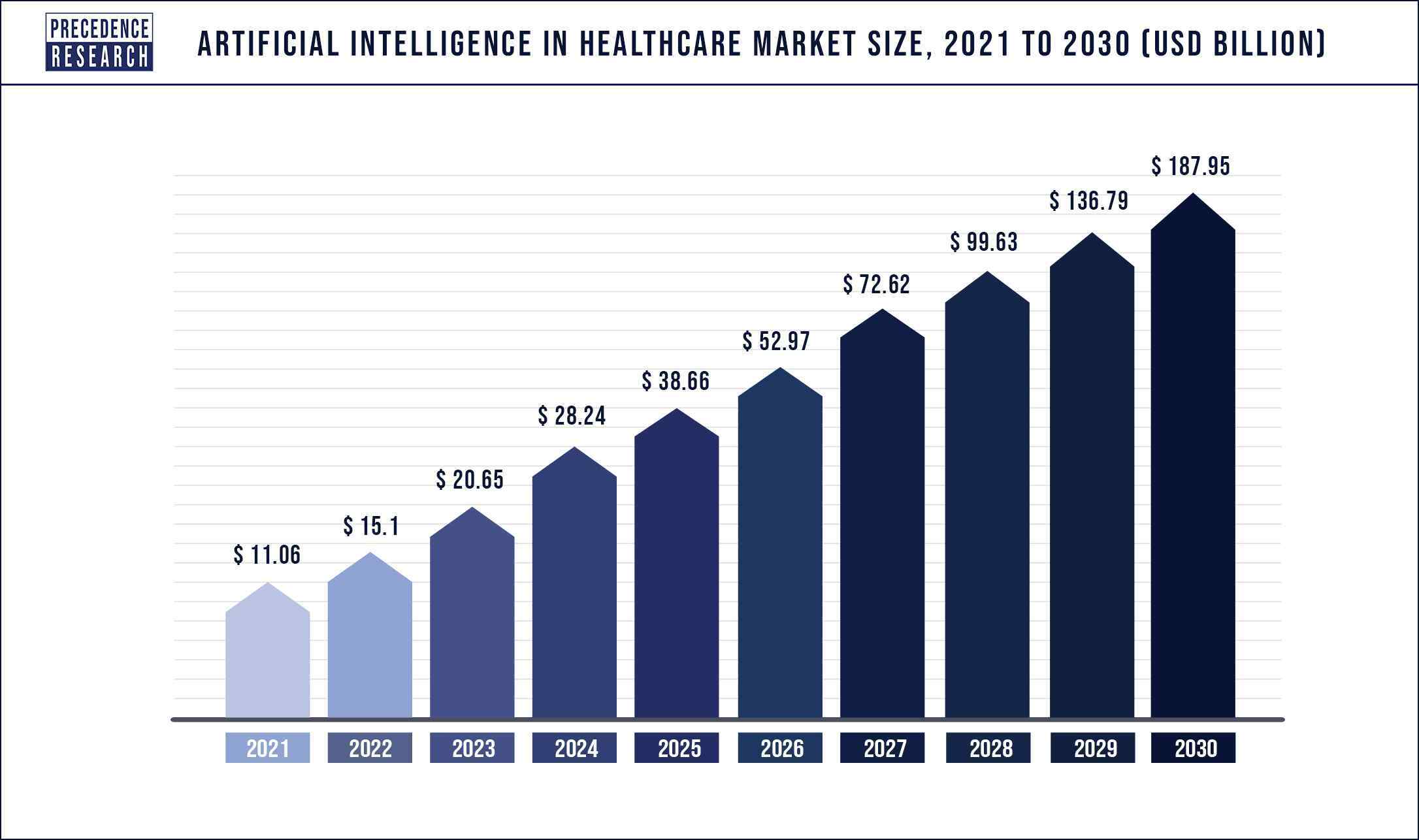
Here are some key areas where AI is being used in healthcare:
A. Medical Imaging
AI algorithms can analyze medical images, such as X-rays, MRIs, and CT scans, to assist radiologists in detecting diseases like cancer, fractures, or neurological disorders. AI can help improve the accuracy and speed of diagnosis.
B. Disease Diagnosis and Risk Prediction
AI can analyze patient data, including electronic health records (EHRs), to assist doctors in diagnosing diseases and predicting patient risks. For example, it can help identify patterns in patient data to predict conditions like diabetes, heart disease, or sepsis.
C. Drug Discovery and Development
AI can accelerate drug discovery by analyzing vast datasets to identify potential drug candidates, predict their effectiveness, and streamline clinical trial designs. This has the potential to result in expedited and more economically efficient drug development processes.
D. Personalized Medicine
AI can help tailor treatment plans to individual patients by considering their genetic makeup, medical history, and other factors. This approach can lead to more effective treatments with fewer side effects.
E. Virtual Health Assistants
Chatbots and virtual health assistants powered by AI can provide patients with information, answer questions, and offer guidance on managing their health conditions. They can also assist in scheduling appointments and medication reminders.
F. Healthcare Operations and Administration
AI can optimize hospital operations by predicting patient admission rates, managing staff schedules, and improving resource allocation. It can also help with billing and claims processing.
G. Telemedicine and Remote Monitoring
AI plays a crucial role in telemedicine by facilitating remote consultations and monitoring patients’ health in real-time. Wearable devices and sensors can transmit data to AI systems for analysis.
H. Natural Language Processing (NLP)
NLP techniques are used to extract valuable insights from unstructured clinical notes, research papers, and patient communication. This can aid in research, coding, and decision support.
I. Genomic Analysis
AI is used in genomic sequencing and analysis to identify genetic mutations and their relevance to disease. This data can assist in formulating tailored treatment approaches.
J. Fraud Detection
AI algorithms can detect fraudulent activities in healthcare billing and insurance claims by identifying patterns of fraudulent behavior.
K. Robotic Surgery
Surgical robots equipped with AI can assist surgeons in performing complex procedures with greater precision. They can also enable remote surgery.
L. Healthcare Chatbots
AI-powered chatbots can handle routine inquiries, appointment scheduling, and even initial symptom assessment, freeing up healthcare professionals for more critical tasks.
M. Drug Adverse Event Monitoring
AI can analyze large volumes of healthcare data to detect adverse events related to medications and vaccines, contributing to drug safety monitoring.
While AI offers numerous benefits in healthcare, there are also challenges, including data privacy concerns, regulatory issues, and the need for robust validation of AI algorithms. As AI continues to advance, it is essential to strike a balance between innovation and ensuring patient safety and privacy in the healthcare domain.
Why go with AI in Healthcare?

The application of Artificial Intelligence (AI) in healthcare is rapidly reshaping the industry, offering transformative benefits. To answer the same here are some popular reports and statistics to follow for AI in Healthcare. By 2026, the AI in healthcare market is projected to reach a substantial $45.2 billion, growing at an impressive Compound Annual Growth Rate (CAGR) of 41.2% from 2021 to 2026, according to a report by MarketsandMarkets. Also, according to a report by Grand View Research, AI-powered medical imaging, with its potential to enhance diagnostic accuracy, is expected to experience a remarkable CAGR of 55.3% between 2020 and 2027. Furthermore, from a report by Nature Medicine, these algorithms have already demonstrated diagnostic accuracy rates of up to 95%, surpassing human capabilities.
During the COVID-19 pandemic, telemedicine utilization surged by over 50% in the United States alone, as per a report from McKinsey & Company. Moreover, AI is poised to revolutionize drug discovery, potentially reducing development costs by up to 60% and shortening timelines by 50% according to the report by Nature Reviews Drug Discovery. PwC Health Research Institute has mentioned in a report that patients are increasingly open to AI-powered healthcare services, with approximately 80% expressing willingness to engage with such technologies.
In fact, as per a report by the American Medical Association, AI-driven remote patient monitoring can reduce hospital admissions by as much as 50%. Additionally, AI has shown great promise in cancer detection, achieving a 94% accuracy rate in detecting lung cancer in one study by Nature Medicine. Furthermore, AI-driven drug repurposing has identified new applications for existing drugs, potentially saving billions in research and development costs according to a report published in Drug Discovery Today.
Now let’s check with more details specific to the features and benefits AI in Healthcare has to offer.
How does AI in healthcare enhance popular applications to deliver advanced features and benefits?
The above-mentioned statistics underscore AI’s profound impact on healthcare, from enhancing diagnostics and patient engagement to revolutionizing drug discovery and reducing costs. AI has the potential to enhance popular applications in healthcare by introducing several key features and benefits.
Here’s how AI can contribute to each of these popular healthcare application types.
1. Electronic Health Records (EHRs)
- Data Entry Assistance – AI can assist healthcare providers in entering patient data more efficiently through voice recognition, natural language processing (NLP), and auto-population of fields.
- Data Validation – AI algorithms can check for errors, inconsistencies, and missing information in EHRs to ensure data accuracy.
- Clinical Decision Support – AI can offer real-time clinical decision support, alerting healthcare providers to potential drug interactions, allergies, or best practice guidelines.
2. Telemedicine and Telehealth
- Remote Monitoring – AI can provide continuous remote monitoring of patients, sending alerts to healthcare providers when vital signs or symptoms indicate a problem.
- Virtual Health Assistants – AI-powered chatbots and virtual assistants can assist with appointment scheduling, prescription refills, and answering patient questions.
- Diagnostic Support – AI can help with remote diagnostics, aiding clinicians in interpreting patient symptoms and images.
3. Medical Imaging and Diagnostic AI
- Image Analysis – AI algorithms can analyze medical images quickly and accurately, assisting radiologists in identifying anomalies and abnormalities.
- Automated Reporting – AI can generate automated radiology reports, saving time for radiologists and ensuring consistency.
4. Health and Wellness Apps
- Personalized Recommendations – AI can provide personalized fitness and nutrition recommendations based on user data and goals.
- Behavioral Insights – AI can analyze user behavior to provide insights into sleep patterns, stress levels, and other factors affecting health.
5. Wearable Health Devices
- Real-Time Monitoring – Wearables with AI can continuously monitor vital signs and provide real-time feedback to users.
- Health Trends Analysis – AI can identify trends and patterns in wearable data, alerting users and healthcare providers to potential health issues.
6. Medication Management Apps
- Medication Adherence – AI can send reminders to users to take their medications and provide information on potential side effects or interactions.
- Dosing Optimization – AI can recommend optimal medication dosages based on individual patient data.
7. Remote Patient Monitoring
- Predictive Analytics – AI can use historical data to predict when a patient’s condition may worsen, allowing for early intervention.
- Automated Alerts – AI can send alerts to healthcare providers when a patient’s vital signs deviate from the normal range.
8. Healthcare Chatbots
- 24/7 Availability – Chatbots can provide round-the-clock access to healthcare information and assistance.
- Symptom Triage – AI-powered chatbots can triage patient symptoms, helping users decide when to seek immediate medical attention.
9. Precision Medicine
- Genomic Analysis – AI can analyze genomic data to identify specific genetic markers and recommend personalized treatment plans.
- Drug Selection – AI can suggest the most effective drugs or therapies based on an individual’s genetic profile.
10. Population Health Management
- Risk Stratification – AI can stratify populations into risk groups based on health data, allowing for targeted interventions and resource allocation.
- Trend Analysis – AI can identify disease trends and outbreaks in real time, aiding in public health efforts.
11. Robotic Surgery
- Enhanced Precision – AI can improve the precision and stability of robotic-assisted surgery systems, reducing the risk of human error.
- Surgeon Guidance – AI can provide surgeons with real-time guidance and feedback during procedures.
12. Medical Research and Drug Discovery
- Drug Candidate Identification – AI can analyze vast datasets to identify potential drug candidates, greatly accelerating the drug discovery process.
- Drug Repurposing – AI can identify existing drugs that may be effective for new indications.
These features demonstrate how AI can augment and optimize healthcare applications, leading to improved patient care, more efficient healthcare delivery, and better outcomes. However, the successful implementation of AI in healthcare also requires addressing challenges related to data privacy, security, regulatory compliance, and user acceptance.
Conclusion
AI in healthcare is poised to revolutionize various aspects of the industry. In fact, it has already begun to transform healthcare applications in significant ways. One of the key areas where AI is making a profound impact is in medical imaging and diagnostics. AI algorithms are increasingly being used to analyze medical images, such as X-rays, CT scans, and MRIs, with remarkable accuracy. Moreover, AI can process these images much faster than human radiologists, leading to quicker diagnoses and treatment decisions. Furthermore, AI-powered diagnostic tools are not limited by fatigue or human error, enhancing their reliability and consistency.
Additionally, AI is playing a crucial role in disease prediction and risk assessment. By analyzing vast datasets from electronic health records and other sources, AI algorithms can identify patterns and trends that may not be apparent to human clinicians. This capability allows for more accurate predictions of diseases, such as diabetes and heart disease, as well as the identification of patients at higher risk. Furthermore, AI can assist in tailoring treatment plans to individual patients based on their unique characteristics, a concept known as personalized medicine. This approach can lead to more effective treatments with fewer side effects.
Furthermore, telemedicine and virtual health assistants powered by AI have become increasingly important.
Telemedicine allows patients to access healthcare services remotely, ensuring continuity of care while minimizing the risk of infection. Chatbots and virtual health assistants, on the other hand, provide patients with information, answer their questions, and assist with appointment scheduling. These AI-driven solutions enhance patient engagement and access to healthcare resources.
As a matter of fact, AI is also contributing to drug discovery and development. AI algorithms can analyze massive datasets to identify potential drug candidates and predict their effectiveness, significantly accelerating the drug development process. Moreover, AI can streamline clinical trial designs, making them more efficient and cost-effective. Furthermore, AI-driven robotic surgery systems are enhancing the precision and dexterity of surgeons during complex procedures, reducing the risk of human error and improving patient outcomes.
In summary, AI is transforming healthcare applications across the board. From medical imaging and diagnostics to disease prediction, treatment personalization, telemedicine, drug discovery, and surgical precision, AI is revolutionizing how healthcare is delivered and improving patient care outcomes. Furthermore, with ongoing advancements in AI technology, the potential for further transformative impact on healthcare remains significant.
Do check out the Top Use Cases and Cutting-Edge Solutions with Generative AI in Healthcare

